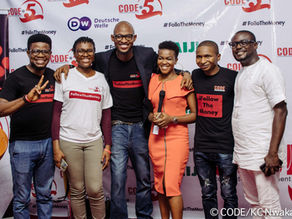top of page


Rethinking Nigeria and The Over Bloated Ego of the Civil Society
Recently, in a profound moment of introspection, I found myself grappling with feelings of fraudulence, realising that my confident...
Busayo Morakinyo
Jun 9, 20234 min read


Civic Tech: The “FAILURE” I didn’t see coming!
I am sorry, but we would need to restart the development if we are going to achieve any tangible results within the timeline you have...
Busayo Morakinyo
Oct 15, 20228 min read


CODE AT 5; What Next?
I had written this piece five years ago but became too reluctant to share, maybe I felt I was too critical of my workspace or I felt it...
Busayo Morakinyo
Aug 26, 20223 min read


THE POWER OF A RIGHT TEAM
The 2020 COVID-19 pandemic taught me one of the greatest lessons yet on the value of family and those who rise in the ranks to become...
Busayo Morakinyo
Aug 25, 202216 min read
bottom of page
